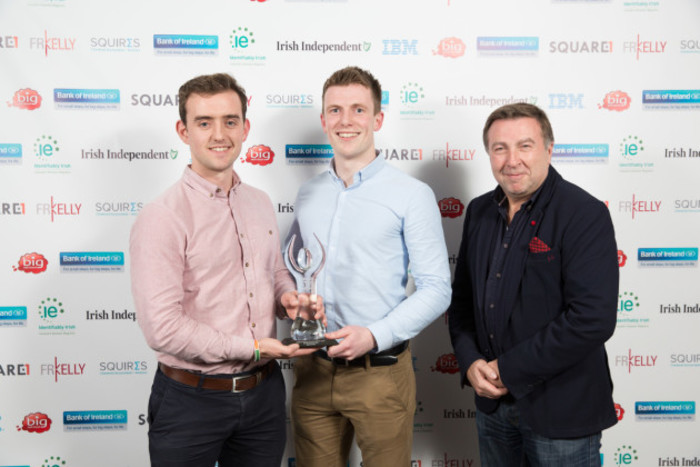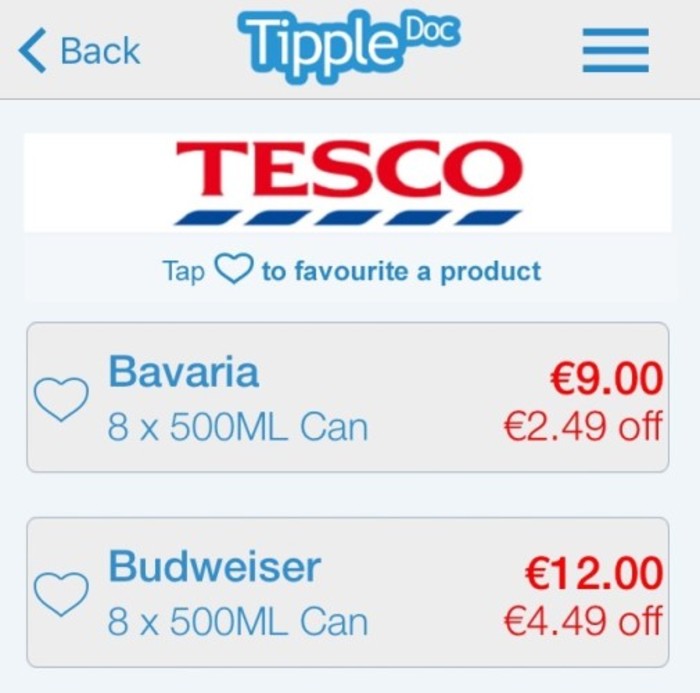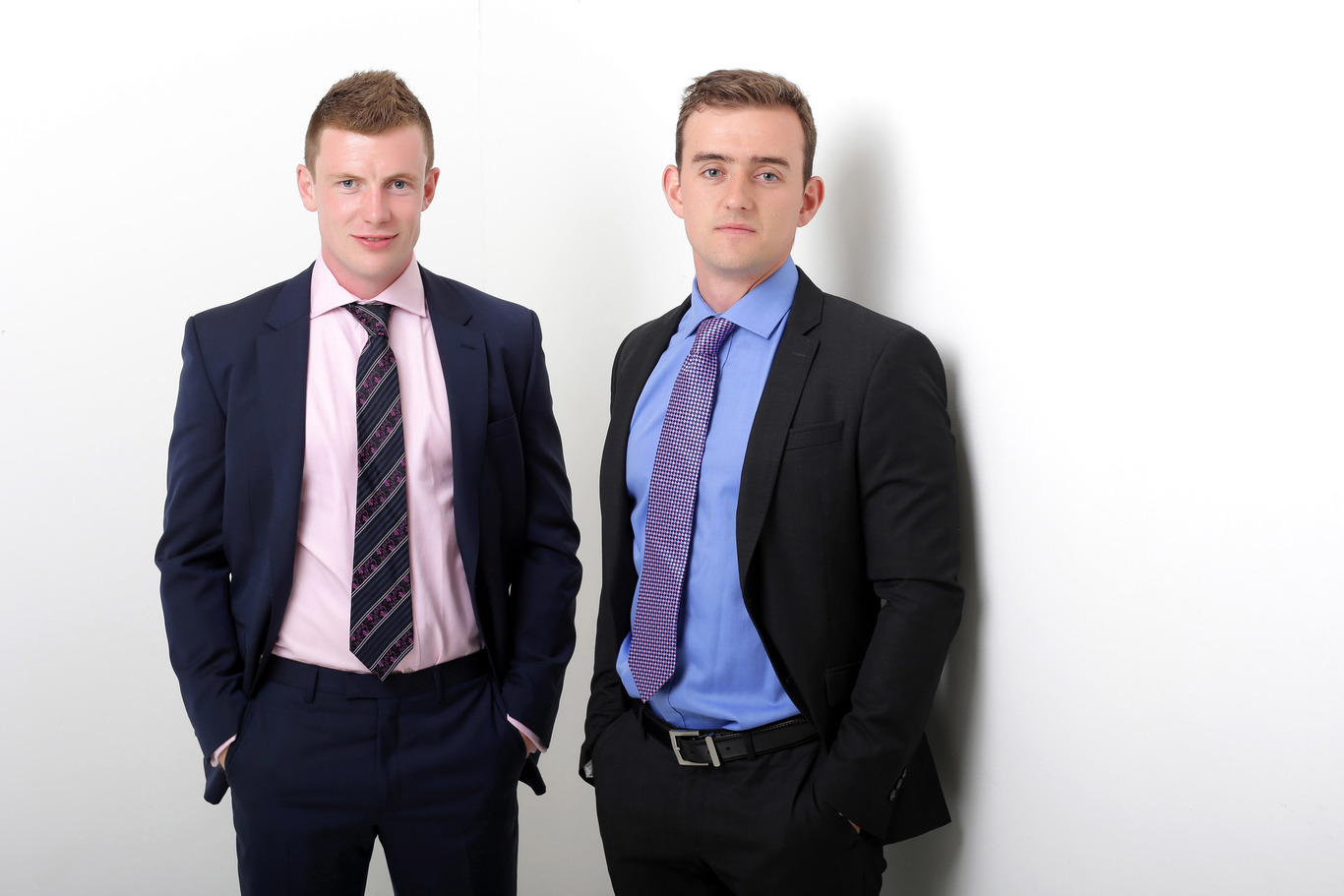'When you start a business like ours, you think you'll be a millionaire in six months'
This first-time founder says he wildly underestimated how long it would take to build a profitable company.
BEFORE MY CO-FOUNDER David and I started our own business, we were working as chartered accountants. But after four years at KPMG, we started looking at our next plan – we didn’t exactly want to be accountants for the rest of our lives.
The job can be pretty grim and involve working a lot of hours, which essentially means you just don’t have a social life because the work piles up.
We were both earning good money when we made the decision to jump ship and focus full-time on an idea for an app called TippleDoc that showed consumers special offers on alcohol in their local shops.
It was a tough decision – I remember telling my girlfriend and my parents I was leaving my job to work on a business that’s not making sustainable revenues just yet. They were so supportive, but naturally the question comes up – do you really want to do this?
Time frames
To cut it short, I’m glad I did. I’ve learned lots of things along the way and one of the main lessons was how to set out realistic time frames. When you start out a business like ours, you think you’re going to be a millionaire within six months, which means you’re not exactly thinking of what you need to do two or three years down the line.
I don’t think we would have made the jump if we knew how long it would take to build the business up to be profitable like it is now. This is why an element of naivety is essential.
 MyDealDoc's Mike Morrissey (left) and David Keenaghan (centre)
MyDealDoc's Mike Morrissey (left) and David Keenaghan (centre)
When you set out a time frame for building a successful business, if it’s your first company, you’re basing it on everyone buying into it straight away and world domination being around the corner. But the reality is that’s not the way it works. The start is a grind because you need to find your niche, build up customer numbers and make your mistakes along the way.
If someone had told me when I was leaving my well-paid job, “Mike, it’s going to take a couple of years to get to that point where you can make sustainable money, getting revenue and raising finance”, I might not have been as excited about it all.
Networking
Although we were excited to start the business when we left our jobs, one thing we couldn’t muster up excitement for was networking. There are loads of networking events on in Ireland all the time for startups, and we originally thought that scene wasn’t for us.
We thought we could focus on working hard by ourselves and on the business model and everything would fall into place. The reality is you need to get out into those networks.
Myself and David went to a lot of events together, and it is very easy to stand in the corner and just chat away to each other. But you have to get out into the middle of the room and outside of your comfort zone to talk to people.
I don’t think networking is something that comes naturally to a lot of Irish people, but it’s so important because that’s where so much business comes from.
You never know who you will end up chatting to. It could be your first big client or a person who might end up putting millions into your company.
We spent a long time in our own little cocoon. When you are working by yourself, you’re not aware of all the help that is available out there and other companies that might be doing similar things to you, not in a competing space, but in a learning capacity.

The first kick-starter
Our first real kick-starter for the business came from getting on Enterprise Ireland’s New Frontiers Programme and all that came from a classic Irish friend-of-a-friend scenario.
Someone who did a bit of work with us in the early days knew a woman who works in Enterprise Ireland, and he said we should chat to her. That introduction was a game changer for us. Without her, we would never have come across the programme, as crazy as that sounds.
I’m convinced if we hadn’t gotten into that programme there is no way we would be around today. We would have stayed in our office in David’s house in Glenageary, away from everything that’s going on, and we would have missed out on the crucial funding.
When we got on the programme, it allowed us to get an office space in Deansgrange and be in an among a lot of other companies that were at the same stage as us.
They were also mostly in the technology space like us so we were able to talk to them about the problems they were facing, and if a lot of us were going through the same issues it was easier to overcome them.
Another example of networking paying off is how we got on the IBM Global Entrepreneurs programme. One day we called someone to ask if he would meet us for a coffee, and over that chat he asked us to speak at an event.
At that event, the head of global retail at IBM came up to us after we spoke and invited us onto its startup programme that offered us server space, free software and spots on think-tanks they were running.
Yet again, that was another game changer for the company and something that came from forcing ourselves to put in calls and network. It’s funny to look back at that and see what a difference one phone call can make.
Mike Morrissey is the co-founder and director of MyDealDoc. This article was written in conversation with Killian Woods as part of a series on business mistakes and what can be learned from them.
If you want to share your opinion, advice or story, email opinion@fora.ie.






